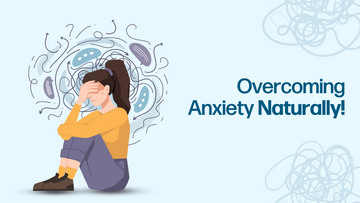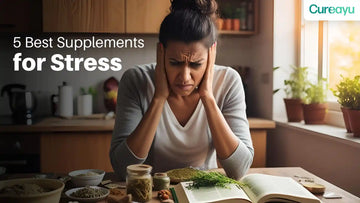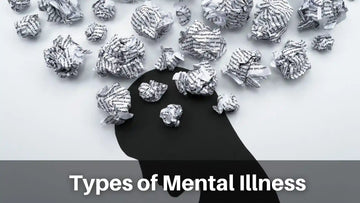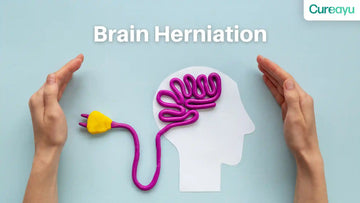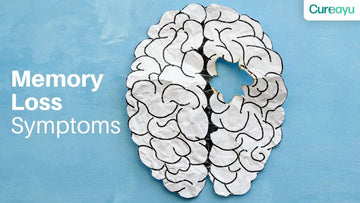What is Anxiety?
- Anxiety can be defined as a feeling of unexplained apprehension or fear which can lead to dysfunction and distress in daily life.
- The common symptoms of anxiety include shortness of breath, rapid heart rate, loss of appetite, chest pain and sleeplessness. However, these symptoms can vary for every individual.
What Causes Anxiety?
- While there is no specific source of anxiety present in all the people with anxiety, often times, prolonged stressful situations in everyday life become the root cause of the apprehension.
- Anxiety can also be genetic and inherited from parents or close relatives. Chances of developing anxiety, if a close relative suffers from it, increases 2-6 times, depending on the individual.
What is an Anxiety Attack?
- An anxiety attack is a sudden upsurge of intense unexplained fear. Some of the symptoms include extreme shortness of breath, chest pain, losing control and sometimes dizziness.
- An anxiety attack can easily be mistaken as a heart attack because of the extreme chest pain and palpitations. It can sometimes lead to fainting.
Also Read: What Is Stress? Exploring the Types and Strategies for a Stress-Free Life
How to Treat an Anxiety Attack?
- Remind yourself to breathe: Pay attention to your breathing for a few minutes. The intensity of an anxiety attack can be lessened by taking deep, slow breaths. Techniques such as 4-7-8 are beneficial during anxiety attacks. Inhale from your nose for 4 seconds, hold the breath for 7 seconds, and release for 8 seconds. This helps to trick the brain into calming down and aids in slowing down the increased heart rate.
- Ground yourself in the present: Chronic worrying or dwelling on the past can frequently set off an anxiety episode. Refocusing on the ‘here and now’ should take a few minutes. Examine your senses of sight, hearing, and touch.
- Identify your triggers: Recognize all the circumstances, people, and locations that make you feel nervous. Ask yourself, “Why would being in this situation make me anxious?” You are more likely to overcome anxiety if you know the source of it.
- Speak to somebody: Speak with a friend or family member if you feel overburdened. Talking with someone provides emotional support and lessens anxiety.
- Take a break: Distracting yourself from your nervous thoughts can occasionally aid in interrupting the pattern. Try engaging in an activity that will divert your attention from your racing thoughts.
How to Overcome Anxiety?
While most people can’t ever completely eliminate an anxiety disorder, the symptoms of anxiety can be reduced significantly. Some of the methods to treat anxiety are as stated below:
- Self-care: Being relaxed and physically fit can most certainly help you to tackle the everyday problems effectively. A relaxed mind helps to form rational thinking patterns and help you break the pattern of overthinking and negative thoughts.
- Questioning your anxiety: While this method may not be helpful during extreme cases of anxiety attack, it can aid drastically during instances of anxiety suffered during daily life. One can question the fears they’re facing and ask themselves, “Are these fears I’m facing realistic?” or “Will worrying about it change anything?” Often times, the answer to such questions is “no” and examining the irrational beliefs one holds during moments of panic, can help calm down the fear and break the misleading thinking patterns.
- Exercise: Even though exercise is the most commonly suggested anxiety cure, it is no doubt a helpful and viable tool. Many researches have continued to show a positive correlation between physical fitness and mental health. Physical exercises such as jogging, swimming and aerobics, encourage a person to stay active which aids in lifting up their spirits and maintaining a good mood. Other yogic exercises and stretching exercises have a calming effect and helps in relaxing the mind, body and soul of a person.
- Support system: Having a strong social support system has proven to be necessary in the life of a human being. A person whom you can go to in times of need and depend on refers to a strong social support. Such people remind you that you are not alone and make you feel cared for.
- Diet: Along with exercise, it is essential to maintain a balanced diet to fulfill all the nutritional requirements of human beings. A good diet provides you with the energy to get through the day and help you maintain a healthy body.
It is also important to note that, each person is different and unique in their own way. For some person, one remedy for anxiety can be more effective than it is for another. Some people can see a drastic change in their lifestyle and health quickly while others might take a while. Hence, it is imperative to understand that consistency is key to bring about any significant improvement in life.
What are Natural Anxiety Medicines?
Aside from the anxiety treatment techniques mentioned above, ancient approaches of ayurveda and yoga, have continued to prove to be continuous and ever-lasting home remedies for anxiety. Ayurvedic medicines are not only made fully organically with no side effects to help reduce anxiety, but also utilize all the benefits provided to us naturally to assist in enhancing memory and comprehending information more accurately.
The Ayurvedic therapy is a thoughtful choice for anyone seeking relief from the physical and psychological impacts of stress because it is precisely designed to target and reduce the symptoms of anxiety and sadness. Some of the ingredients that are utilized in the creation of the anxiety cure are-
- Shatavari: Consisting of the richness of a number of phytochemicals called steroidal saponins and other vitamins and minerals. Shatavari is a potent mood enhancer and can be used to treat a variety of mental conditions, including anxiety, stress, emotional discomfort, and dementia. It helps to reduce cold hands and feet, restlessness and agitation, among other symptoms of anxiety, by regulating serotonin levels.
The potent antidepressant has the ability to alleviate anxiety, reduce irritability, and boost stamina and energy.
- Brahmi: Brahmi is made up of a potent class of substances called bacosides. Particularly in the brain, bacosides exhibit antioxidant qualities. It improves one’s ability to concentrate, remember things, and interpret visual information. Stress and anxiety are also reduced by elevating mood and reducing cortisol levels.
- Shankhpuspi: It relaxes the brain and reduces tension and anxiety.
It helps memory, intelligence and focus as a brain tonic. Numerous mental health conditions, including depression, dementia, restlessness, etc., can be reduced by it due to its potent anti-depressant, anti-anxiety, and anti-stress properties.
Also Read: How to Maintain Normal Blood Pressure for a Healthier Life
Conclusion
Anxiety is one of the most common but severe issues faced by people in present times. In a country like India, where mentally ill people continue to face discrimination in terms of work opportunities as well as personal relationships, there is a rising upsurge in the psychological disorders suffered by individuals.
Studies suggest that nearly 88% of people are diagnosed with some form of anxiety. However, the issue is still relatively unattended to as people continue to suffer in silence. It’s time to accept the seriousness of the issue so that those who have been diagnosed can receive the support and tools they require to reduce anxiety.

